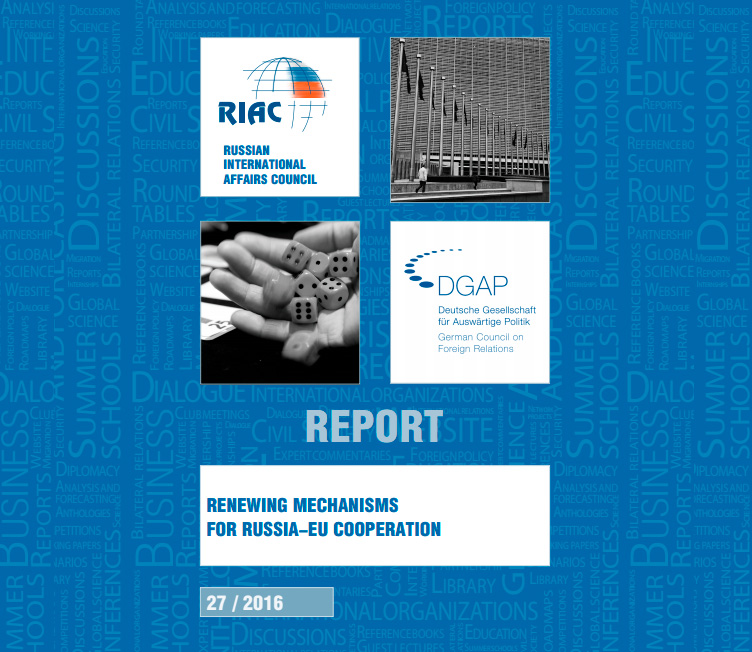The rift between Brussels and Moscow is deep. The Ukrainian war, the subsequent EU sanctions and Russian counter-sanctions have dragged the bilateral relationship to its lowest point since the collapse of the Soviet Union. Strategic distrust and a clash of perceptions are pervasive. From an EU perspective, the core problem lies in Russia’s relationship with its immediate neighbors to its West. For many in the Kremlin, the EU — although ailing — has become a threatening power expanding to the Russian borders. The very rules of the geopolitical game are in dispute.
The rift between Brussels and Moscow is deep. The Ukrainian war, the subsequent European Union (EU) sanctions and Russian counter-sanctions have dragged the bilateral relationship to its lowest point since the collapse of the Soviet Union. Strategic distrust and a clash of perceptions are pervasive. From an EU perspective, the core problem lies in Russia’s relationship with its immediate neighbors to its West. For many in the Kremlin, the EU — although ailing — has become a threatening power expanding to the Russian borders. The very rules of the geopolitical game are in dispute. The disagreement goes as far as considering what is acceptable and what is not acceptable. New foundations of consensus regarding the European architecture have yet to be defined; and 2017 promises to be extremely intense and challenging.
For now, the Trump administration seems completely unpredictable; but not truly promising either for the EU or Russia. The EU is facing overlapping crises — debt, Euro migration, refugees, terrorism, populism- from its core to its periphery, which are putting its own existence at stake. The new US administration seems at best indifferent about the EU. But some statements made by President Trump suggest a distinct hostility towards European liberal values and the European project at large. Trump's victory is a strong wake-up call for the EU. But hostility is coming not just from outside. Populist forces with an anti-EU agenda are on the rise and they might take power in Holland and France in the upcoming elections. Germany seems less likely to succumb before this tide, but no scenario can be completely ruled out amidst the current uncertainty. Short-term prospects are bleak for the EU.
Prospects for Russia, especially economic ones, are not much better. But the Kremlin probably thinks that it has only to wait and the EU –particularly the consensus on sanctions– will fall like ripe fruit. Lifting the sanctions is clearly the main goal in the Kremlin’s agenda towards Europe today. And without clear backing from Washington, the EU will find it difficult to maintain its firm position on Russia, which is built upon a fragile consensus. France is now the key playground in this regard, but not the only one. A triumph for the right-wing populist, Marine Le Pen, would be the worst nightmare for the EU as an integrative liberal project. Analogies between the EU and the collapse of the Soviet Union might be tempting, particularly for those in Russia who are fed up with what they perceive as a patronizing EU. However, these analogies are inaccurate and misleading and this blatant satisfaction with the EU’s existential troubles is shortsighted.
Attitudes towards Russia differ drastically among EU member states, from those considering it an existential threat — mostly those bordering Russia and/or those formerly in the Soviet bloc — to those seeing Moscow through the lens of trade, investments and potential strategic partnership —particularly Western and Southern European countries. Russia is a highly divisive issue, probably the most challenging one for forging common policies at the EU level in the current context. However, there is still a strong consensus on Russia among EU Member States. It is often not considered, if not completely ignored, on both sides, but it should be acknowledged, particularly by many of those in Russia rubbing their hands when contemplating the EU’s worsening crises.
Thus, regardless of their perception, all EU Member States agree that a prosperous and stable Russia is in their strategic interest. That was the underlying logic behind the EU policies towards Russia in the last two decades supporting its structural modernization. And it is still the prevalent approach. Sanctions were conceived as a dissuasive measure regarding the Kremlin’s intervention in Ukraine, not as a tool to ruin Russia’s economy.
Therefore, it is hard to argue that a hypothetical collapse of the EU would be beneficial for Russian society at large. The Kremlin would probably regain some leverage vis-à-vis most European countries, but the overall framework of supporting Russia’s modernization and investments in sectors beyond the oil and gas industry will be lost. Neither would it mean more secure borders for Russia and definitely not more peaceful European geopolitics. As history has shown, no other organization has better guaranteed peace among its members and neighbors than the European Union.
Last but not least, there is no any indication suggesting that Asian powers, including China, share this strategic view regarding Russia. Beijing sees Moscow as a key diplomatic partner when it comes to challenging US global hegemony. But it remains to be seen whether China envisions a modernized, rich and prosperous Russia as a strategic goal. Hence alternative sources of investment and technology transfers are not that evident. And despite the current strained bilateral context and its particular features, Russia sees itself as part of European civilization.
It will take time, probably years, to rebuild mutual trust. For now, it seems sensible not to overstate expectations and to skip attempts to revive ambitious narratives about convergence, common spaces or the Common European Home. Nevertheless, this European consensus on Russia should be part of the public debate in Russia. What is at stake is not the bilateral relationship but the future of Russia and Europe. Thus, many of those in Russia enjoying the EU crisis should beware of what they wish for, because it might come true — to no-one’s benefit.






